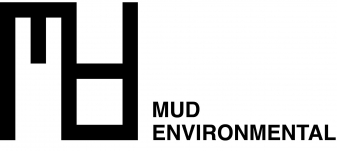

Mud Environmental

South Australia, Australia
May 2016
Environmental consulting
Service with Minor Environmental Footprint
Australia
Mud Environmental are experts in the assessment, remediation and auditing of site contamination. They aim to streamline the process of making contaminated land safe for the community and environment by working with a team of Environment Protection Authority approved specialists, as well as affiliates that support ethical business practices. Mud provides advice and services relating to soil, water and soil gas investigations, remediation and management of site contamination, environmental due diligence (land transactions), regulatory liaison and strategic advice, disposal and/or re-use of waste materials, site contamination audits and expert witness. Mud Environmental seek to repair their local environment, one contaminated site at a time. They have defined their values, which form the core of the business and are therefore front of mind during all decision making. Mud is striving to continuously improve the sustainability of their operations by contributing in a positive way to their people, local community and environment. Mud believes that business doesn't always need to be serious, and they try to have fun every day!
Overall B Impact Score
Governance 13.0
Governance evaluates a company's overall mission, engagement around its social/environmental impact, ethics, and transparency. This section also evaluates the ability of a company to protect their mission and formally consider stakeholders in decision making through their corporate structure (e.g. benefit corporation) or corporate governing documents.
What is this? A company with an Impact Business Model is intentionally designed to create a specific positive outcome for one of its stakeholders - such as workers, community, environment, or customers.
Community 12.8
Community evaluates a company’s engagement with and impact on the communities in which it operates, hires from, and sources from. Topics include diversity, equity & inclusion, economic impact, civic engagement, charitable giving, and supply chain management. In addition, this section recognizes business models that are designed to address specific community-oriented problems, such as poverty alleviation through fair trade sourcing or distribution via microenterprises, producer cooperative models, locally focused economic development, and formal charitable giving commitments.
Environment 64.6
Environment evaluates a company’s overall environmental management practices as well as its impact on the air, climate, water, land, and biodiversity. This includes the direct impact of a company’s operations and, when applicable its supply chain and distribution channels. This section also recognizes companies with environmentally innovative production processes and those that sell products or services that have a positive environmental impact. Some examples might include products and services that create renewable energy, reduce consumption or waste, conserve land or wildlife, provide less toxic alternatives to the market, or educate people about environmental problems.
What is this? A company with an Impact Business Model is intentionally designed to create a specific positive outcome for one of its stakeholders - such as workers, community, environment, or customers.
Customers 0.8
Customers evaluates a company’s stewardship of its customers through the quality of its products and services, ethical marketing, data privacy and security, and feedback channels. In addition, this section recognizes products or services that are designed to address a particular social problem for or through its customers, such as health or educational products, arts & media products, serving underserved customers/clients, and services that improve the social impact of other businesses or organizations.